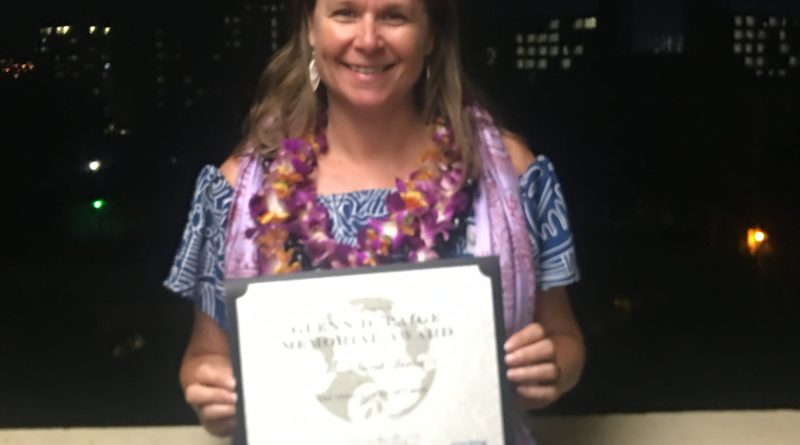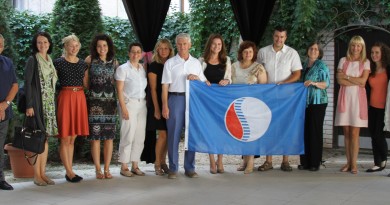Sarah Juran receives inaugural Glenn D. Paige Nonkilling Memorial Award
Ms. Sarah Juran is the inaugural Glenn D. Paige Nonkilling Memorial Award scholarship recipient presented by the Spark M. Matsunaga Institute for Peace and Conflict Resolution at the University of Hawaii Manoa in collaboration with the Center for Global Nonkilling. A Graduate Student with the Center for Pacific Islands Studies, Juran is pursuing a Conflict Resolution Graduate Certificate focusing on Solomon Island Women and the role they play in peacebuilding and peacekeeping in their society. Her passion for working with women from the Solomon Islands comes from the years she spent in rural Solomon Islands villages working as a US Peace Corps volunteer.
 Juran says her research is embedded in the value and necessity of indigenous epistemologies recognizing the critical importance of engaging in dialogue with Solomon Islands women about their experience during the 1998-2003 ethnic tension that dramatically affected their communities, families, and nation. Banning together to promote peace and nonkilling, Juran examines ways Solomon Islands women emphasized communal values and shared traditions to create the necessary conditions to achieve and maintain peace and restorative justice practices. Her paper Voice Blong Olketa Mere: The Role of Solomon Island Women in Conflict Resolution and Peacebuilding will be available Fall 2018. Grateful to receive this award, Juran notes the recognition of her scholarship recognizes and amplifies discourse around peace education showcasing Solomon Islands women as leaders in conflict resolution and peacebuilding in the Pacific.
Juran says her research is embedded in the value and necessity of indigenous epistemologies recognizing the critical importance of engaging in dialogue with Solomon Islands women about their experience during the 1998-2003 ethnic tension that dramatically affected their communities, families, and nation. Banning together to promote peace and nonkilling, Juran examines ways Solomon Islands women emphasized communal values and shared traditions to create the necessary conditions to achieve and maintain peace and restorative justice practices. Her paper Voice Blong Olketa Mere: The Role of Solomon Island Women in Conflict Resolution and Peacebuilding will be available Fall 2018. Grateful to receive this award, Juran notes the recognition of her scholarship recognizes and amplifies discourse around peace education showcasing Solomon Islands women as leaders in conflict resolution and peacebuilding in the Pacific.
The Glenn D. Paige Nonkilling Memorial Award was established in 2018 and seeks to support the development of nonkilling theory and research by encouraging graduate students to produce original scientific work that tackles issues related to the construction of nonkilling societies, where killing, threats to kill and conditions conductive to killing are absent, particularly in relation to the United Nations Sustainable Development Goals target 16.1, “to significantly reduce all forms of violence and related death rates everywhere”.




